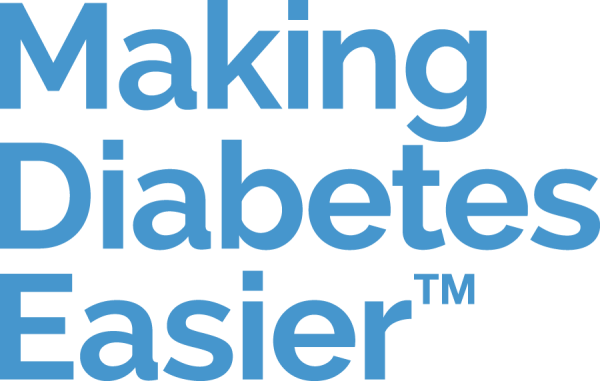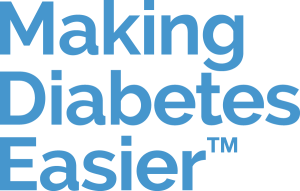Diabetes and Ramadan: managing your blood glucose while fasting

40 to 50 million people with diabetes worldwide fast during Ramadan, the ninth month of the Islamic calendar [1,2]. Fasting between sunrise and sunset may raise the risk of hypoglycaemia and hyperglycaemia [2]. Read on for an overview of some tips for managing diabetes during fasting.
Adjust your treatment in consultation with your doctor
Contact your healthcare professional and let them know your intention to fast. This will provide you with a professional opinion about the risks involved with fasting in your particular case - depending on your specific medical context, and you may be advised not to - and information about possible consequences and the best way of avoiding them.
Observing the holy month while managing your diabetes is possible. They will help you adapt your meal plan, physical activity, and treatment to accommodate the changes in your daily routine due to Ramadan [1,2,3]. The recommendations given by your healthcare professional will be personalised to your diabetes and your medical profile [2].
Type 1 Diabetes
Suppose you're living with type 1 diabetes to better manage your blood glucose levels while fasting. In that case, you may be encouraged to change the times of day and doses administered and the type of insulin. It is recommended that you pay particular attention to increasing your frequency of blood glucose monitoring [2,3].
Type 2 Diabetes
With type 2 diabetes, there will be might be a greater focus on meal planning and managing food portions at meals to limit episodes of hyperglycaemia and to adjust the length and intensity of physical activity during the day to limit the risks of hypoglycaemia; on the other hand [2].
What if your diabetes treatment includes medication?
If your diabetes treatment includes medication, changes may also be recommended: when possible, preference should be given to types of medication that are not likely to trigger hypoglycaemia (Metformin, Glitazones, dipeptidyl peptidase-4, inhibitors...), perhaps also changing the times of day at which they are taken. [1,2]. Lastly, if you are taking insulin, you may need to change the amount and frequency of dosage [2,4].
A particular time that requires taking particular care
A particular time that requires taking specific care During Ramadan, it is recommended that you increase the frequency of blood glucose monitoring [1,2], especially if you are living with type 1 diabetes or type 2 diabetes with an insulin-based treatment [2]. It may be helpful to check your blood glucose level more often and any time you feel any symptoms of hypoglycaemia or hyperglycaemia [4]. Furthermore, breaking your fast in the event of hypoglycaemia is recommended.
Intense physical activity is not recommended during Ramadan as it carries an increased risk of periods of hypoglycaemia [1,2].
Do you perform Tarawaih evening prayers?
Did you know that Tarawaih evening prayers (multiple prayers after the sunset meal) can be considered a physical activity? It's a good idea to consider them as part of your daily exercise program [1,2]!
Your diet during fasting
Ramadan is a moment for spending time with family and friends and eating traditional dishes, so here are some dietary tips to help you enjoy these moments fully while managing your diabetes:
- consider spreading your food intake over two or three small meals with a specific consideration of the carb content of each meal to limit hyperglycaemia [1,2];
- try to maintain a balanced food intake throughout the month of Ramadan by restricting the consumption of large quantities of sweet and fatty foods [1,2];
- include small amounts of simple sugars (for example, a few dates) in your evening iftar meal and opt for the more complex carbohydrates in your pre-dawn seher meal [1,2,3];
- consider including high-fibre foods (wholegrain cereals, brown rice, fruit and vegetables) for the iftar and seher meals [1];
- have your pre-dawn seher meal as late as possible [2].
As one of the five pillars of Islam, Ramadan is an important time for all Muslims. Consulting with your healthcare professional and adjusting your treatment to your needs will enable you to experience this sacred time comfortably.
Sources
- A. Badshah. Management of diabetes in Ramadan. J Ayub Med Coll Abbottabad Oct-Dec 2018; 30(4), 596-602.
- M. Al-Arouj et al. Recommendations for Management of Diabetes During Ramadan. Diabetes Care 2005 Sep; 28(9): 2305-2311; doi: 10,2337/diacare.28.9.2305. https://doi.org/10.2337/diacare.28.9.2305.
- M. H. Ahmed, Diabetes and Ramadan: A concise and practical update. J Family Med Prim Care. 2017 Jan-Mar;6(1):11–18; doi: 10.4103/2249-4863.214964.
- M. Hassanein et al. Diabetes and Ramadan: Practical guidelines. Diabetes Research and clinical practices Vol. 126 (March 2017) 303-316; doi: 10.1016/j.diabres.2017.03.003


